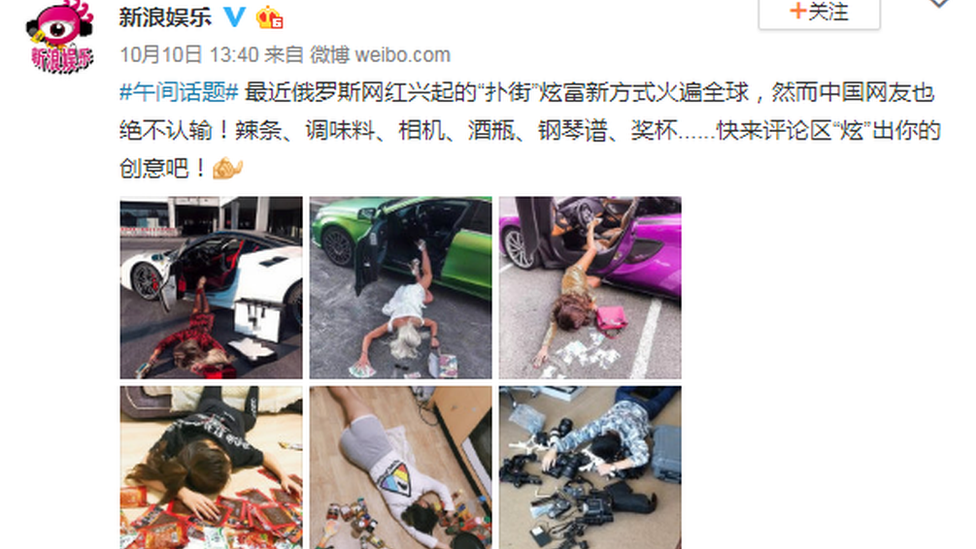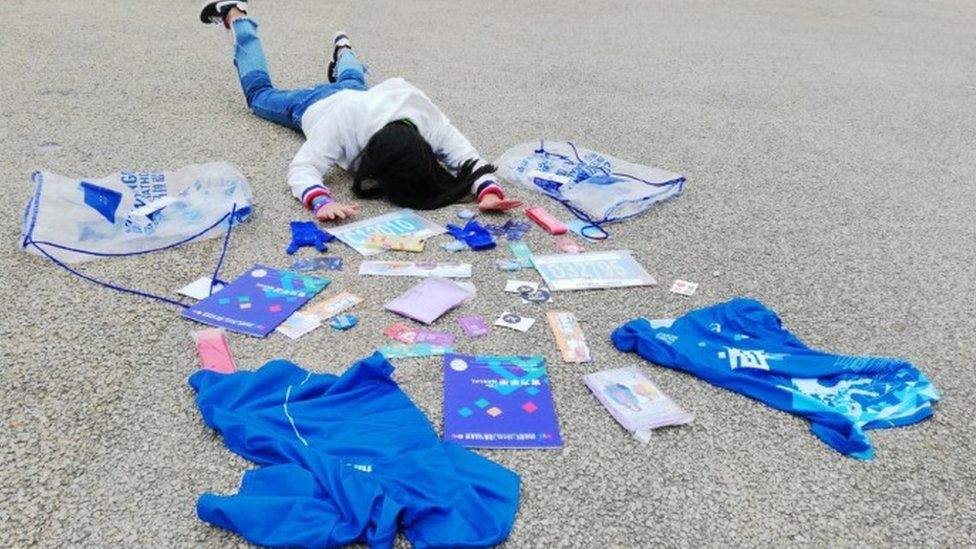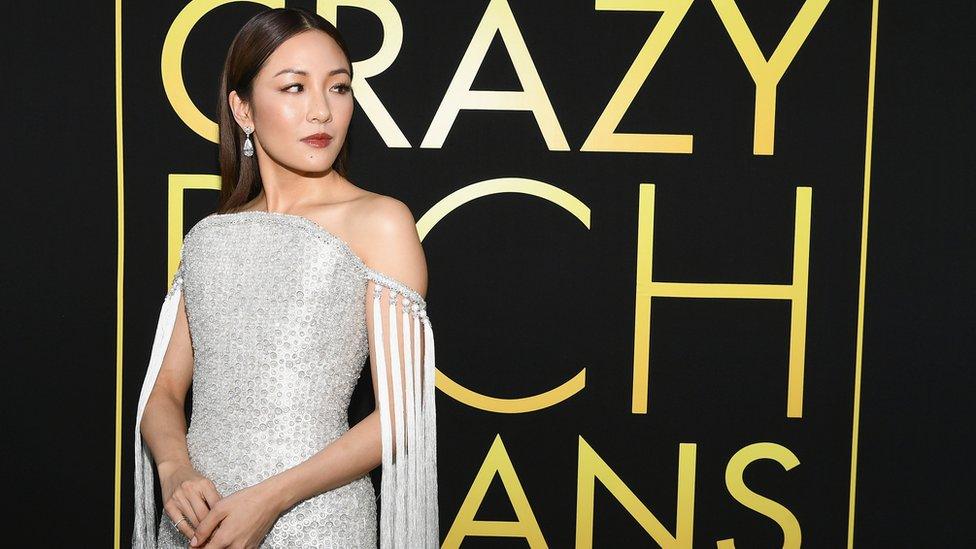Falling stars challenge: China's twist on the young rich millennial meme
- Published

Sina Entertainment said that Chinese users were "more creative" than the Russians with the challenge - showing their daily life toils
One of the hottest online trends of the summer - the #fallingstarschallenge - has now made an appearance in China and it is inevitably being reinvented by Chinese millennials who never pass up an opportunity for parody.
The trend began in Russia and became wildly popular in August, particularly among the country's rich kids of Instagram.
It saw wealthy young Russians use the hashtag #fallingstarschallenge2018 while staging falls out of luxury cars and private jets surrounded by items like luxury handbags and champagne glasses casually splayed around the floor. The trend quickly went global, but has particularly proven popular in China.
Certainly some wealthy young Chinese have been showing off their bling in the challenge.
Allow Instagram content?
This article contains content provided by Instagram. We ask for your permission before anything is loaded, as they may be using cookies and other technologies. You may want to read Meta’s Instagram cookie policy, external and privacy policy, external before accepting. To view this content choose ‘accept and continue’.
But it is only in China that it has has come to take on new meaning, with Chinese users competing to show the struggles they face in their ordinary lives, sending up young wealthy kids so casually collapsed among their riches.
Some observers believe the trend has taken on new meaning because flaunting your wealth is increasingly viewed with suspicion in China, which has seen a string of scandals around extravagance, corruption and deception.
'More creative' in China
In the last two weeks #fallingstars posts showcasing the difficulties of daily life have suddenly racked up tens of thousands of likes on the popular Sina Weibo microblog.

The #fallingstarschallenge has taken off in China - but people aren't just using it to flaunt their wealth
Chinese media has wasted no time in highlighting the difference between the way Russian and Chinese users are posting, saying that while overseas Chinese have jumped on the bandwagon, domestic users are not using the challenge to flaunt their wealth.
You might also be interested in:
That perspective was summarised neatly when China's main CGTN broadcaster reported that one Chinese woman who tried the challenge using a luxury car "was recently fined for a traffic violation" - but others had "more positive ideas". The Sina news portal describes the Chinese trend as "more creative" than the Russian.
It showed pictures on its Weibo microblog of super-wealthy Russian women falling out of expensive vehicles, surrounded by luxury goods juxtaposed with pictures of Chinese people staging falls in front of cheap, household products or items associated with their work and study.
It was a message that clearly found favour and was being spread by the Chinese authorities. But the BBC also asked a few users what their thinking was behind their posts.

One user took the challenge before running in a marathon
One user, 'MrBailuJ' says she took her picture at a marathon she was competing in, in the northern city of Xi'an. She says: "I received my pack before the race, and I thought about this recent photo trend. It's so different from previous ones, and I thought it was an interesting way to take a picture and share with my circle of friends."
One user says he works at an education institute, and shares a picture of him collapsing in front of multiple mobile phones, tablets, and packets of biscuits.
Another user, May, says she chose to do the trend to show the daily struggles of keeping fit. "I don't own a sports car, or anything Hermes, I only have barbells and protein powder," she says.

May said she didn't have 'a sports car or anything Hermes' but used what she had
One user told the BBC that flaunting one's wealth could actually lead to criticism from other users.
He said: "Most of the Chinese people doing this online aren't doing it because they're wealthy. They are showing their experiences of the past and present, or their personal achievements.
"Showing off their wealth on the internet would lead to ridicule," he says. "The less money you have, the less afraid you will be of letting others see your wealth."
He says that this explains why "the super-rich have not come out to show off".
Increased scrutiny
In China, people are pretty open about how much money they earn.
But those who flaunt their wealth are increasingly viewed with suspicion and some hostility. Wang Sicong, the son of one of China's richest men, Wang Jianlin, came under fire from users in May 2015, after he spent 250,000 yuan ($36,000; £27,000) on a couple of Apple watches for his pet dog.
Since Xi Jinping came to power in late 2012, China has seen a large-scale anti-corruption campaign targeting "tigers and flies" - high and low-level officials who have been accused of bribery or abuse of power.
Questions about the legitimate earnings of China's elite extended to China's entertainment industry in early October when the government fined top actress Fan Bingbing for tax evasion and other offences.
On social media there have been calls for a wider investigation into China's super-rich, to establish whether their earnings are legitimate, so it's perhaps not surprising that the Chinese internet is sending up as much as flaunting wealth when it comes to falling stars.
BBC Monitoring, external reports and analyses news from TV, radio, web and print media around the world. You can follow BBC Monitoring on Twitter, external and Facebook, external.
- Published2 September 2018

- Published30 July 2018
